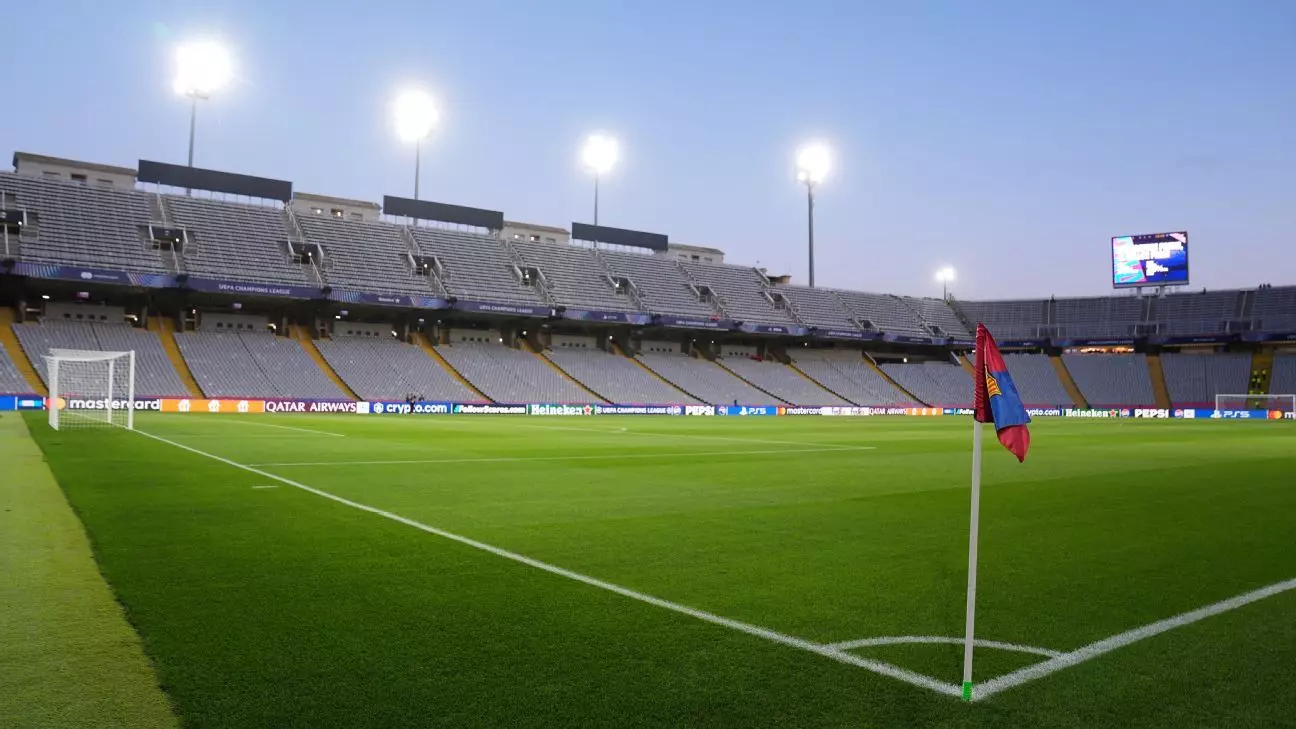The recent decision by FC Barcelona to close a section of the Olympic Stadium indefinitely shines a light on the tense relationship between the club and its supporters’ groups. This move is a consequence of unresolved disputes regarding unpaid fines imposed on various fan groups for violations of stadium regulations. The repercussions of this action are not merely administrative; they resonate deeply within fan culture and the atmosphere that surrounds match days.
The Espai d’Animació (EDA), a designated section for enthusiastic supporters located behind one of the goals at the Olympic Stadium, has become the focal point of this conflict. Reports indicate that the total owed amount stands at approximately €21,000 (or $22,092), stemming from the behavior of fans during the previous season. It’s crucial to highlight that this isn’t an isolated incident; instead, it reflects a pattern where fan infractions have reached a threshold that prompted disciplinary measures from the club. Barça has asserted that despite having granted multiple opportunities for the groups to settle their debts, no compliance has been observed, prompting their decision to take further action.
The repercussions of closing the EDA are multifaceted. For fans, this decision represents a loss of a communal space that has historically fostered jubilation and solidarity among supporters. The camaraderie shared in this singing section enhances the match experience, making the atmosphere electric and inviting. By closing it, the club risks alienating a segment of its passionate fan base, which could have long-term consequences for the relationship between supporters and management.
Moreover, for FC Barcelona, the decision serves as a critical turning point in how the club enforces regulations while navigating the complexities of supporter engagement. While maintaining order is essential, the challenge lies in balancing disciplinary action with fan passion—a delicate equilibrium that, if disrupted, can lead to further discontent among supporters.
Looking forward, Barcelona’s management is open to dialogue, as reiterated in their official statements. They have expressed a commitment to reinstating the EDA once the outstanding obligations are fulfilled. This position could foster an opportunity for constructive discussions with the supporters’ groups, focusing on not only compliance but also establishing a more robust framework for mutual respect and understanding.
In a broader sense, this situation serves as a cautionary tale for sports clubs globally. The dynamics between management and fan engagement are critical, and when financial disputes mar these relationships, both parties must navigate the complexities carefully. The resolution of this conflict will be an essential test of Barcelona’s dedication to its cultural identity as a club that values its supporters while adhering to the necessary regulations. Thus, the next steps taken by both the club and the supporters will be pivotal in shaping the future of this long-standing relationship.

